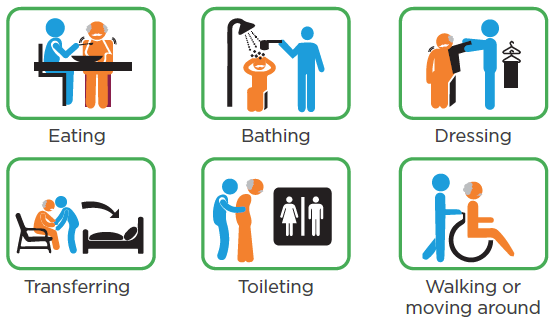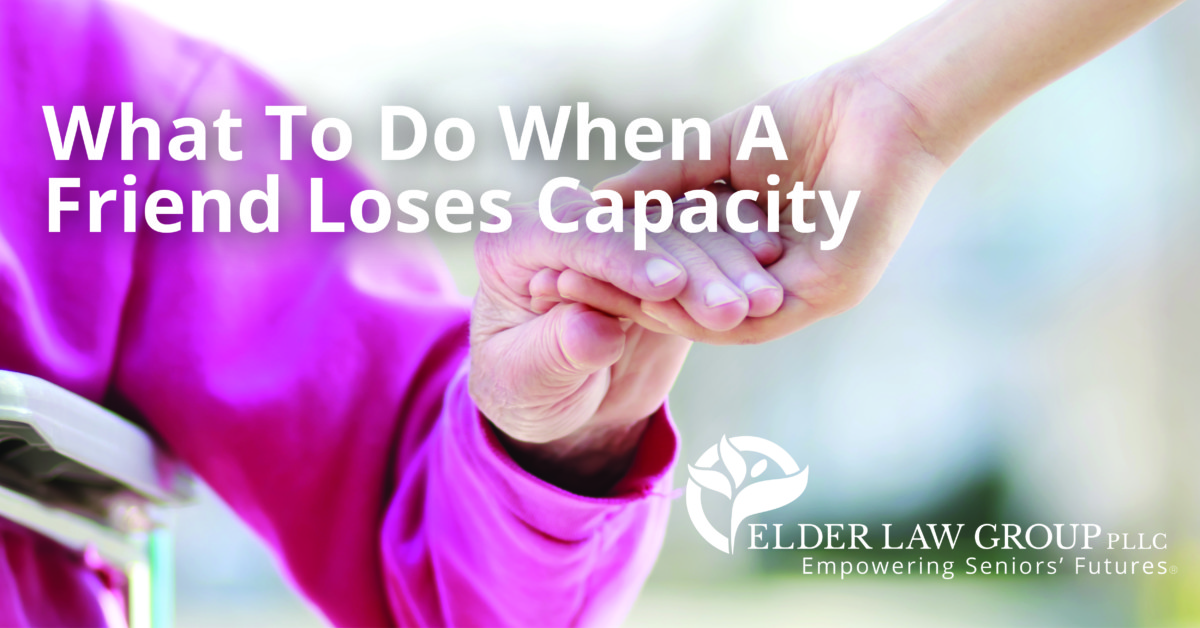you don’t know where to turn. When a family member starts declining in health
and capacity, you usually have the support of other loved ones and the family
doctor to help determine your next steps. But what do you do when the person
who needs help isn’t family?
The Situation
Years ago, my fiancé and I moved into a second-floor apartment. The complex was small and over time we got to know our neighbors pretty well. One of which was our downstairs neighbor, an older lady in her mid-eighties.
We lived next to her for 6 years. Over time, I saw her less as her legs grew weaker and she couldn’t walk very far with confidence. She started driving her car over to the apartment manager’s office, two buildings over, to deliver her rent.
That January I started hearing loud, continuous knocking in the evenings. It seemed to move from room to room, but was hard to pinpoint. At first, we thought it was coming from our new upstairs neighbors, who had young kids.
It went on for a couple of weeks, occasionally stopping for a few days, but it would often resume in the middle of the night.
One day I decided to call the downstairs neighbor. I hadn’t seen or talked to her in about a month at that point, and wanted to see how she was.
It had never occurred to me that she was the one knocking.
It was clear, in the first few moments of our conversation, that she was not in her right mind. She was paranoid and accused my fiancé and me of stealing electricity from her. To her, it felt like we were trying to drive her out, which is why she had been knocking on the wall with her cane.
It was so heartbreaking. I knew she wasn’t close with her family and it was likely that she had gone weeks without speaking to anyone.
Living alone and showing signs of dementia, there was a huge potential for something to go wrong. Was she able to get food and feed herself? What if she accidentally left her stove on and it caught fire, or if she left her car running in the attached garage? She posed a huge threat to herself and others living in the complex.
Steps to Help
I called our apartment manager immediately to apprise her of the situation. At that point, she was aware our neighbor had been losing capacity but not the extent.
However, the apartment manager couldn’t do much. She did not have current contact information for any of my neighbor’s family to alert them of the situation. My neighbor was unwilling to provide a phone number for any of her adult children.
Calling DSHS
The Department of Social and Health Services has a branch called Adult Protective Services. If a senior is exhibiting difficulty with activities of daily living, such as difficulty walking, bathing, eating, or they are cognitively impaired, DSHS will assign a case worker to evaluate the situation and provide resources if the person qualifies. In this situation, they were able to get my neighbor signed up for Meals on Wheels as well as make safety improvements to areas of concern, like her bathroom.

Her self-imposed isolation had amplified her anxiety over time. That sudden influx of help really softened the paranoia that my neighbor had been exhibiting. A big drawback however, was that she didn’t feel it necessary to look for assisted living for her continued care. Eventually, the paranoia and the knocking started up again once people weren’t coming to check on her as often.
DSHS doesn’t always have adequate resources for seniors that are exhibiting dementia symptoms.
In order to make sure that my neighbor would continue to get help, I was told to call Frontier Mental Health and ask for them to do a wellness check.

Throughout all of this, though I was able to call and report my concerns, I had no right to know what was actually being done on my neighbor’s behalf. I couldn’t get updates, advocate for her, or follow up to make sure that she was still getting help. All I could do was call and hope that someone showed up.
Eventually, my neighbor was moved to an assisted living facility.
Whether she was able to make that decision on her own or if she was placed into
a Guardianship, I don’t know. The process was messy and upsetting to my
neighbor who had little control over how quickly events unfolded.
This was an awful ordeal, for my neighbor, for my apartment manager, and for me. I have no doubt that I did the right thing to help, but so much of it was out of my – and her – control.
How Could This Have Been Prevented?
So often, people wait until an emergency to start planning ahead for the unexpected. For my neighbor, waiting meant she gave up her ability to make decisions for herself.
If she had Durable Powers of Attorney, she could have had an advocate making sure that she was getting the care she needed.
Had she been more open with who her emergency contacts were, someone she trusted could have comforted her and helped her through the transition.
This was a terrible and completely preventable situation. Don’t wait to have a plan. Don’t give up the ability to make decisions for yourself. Call an Elder Law Attorney and give yourself the tools you need to stay independent.
For more information, contact the experienced legal team at Elder Law Group.


